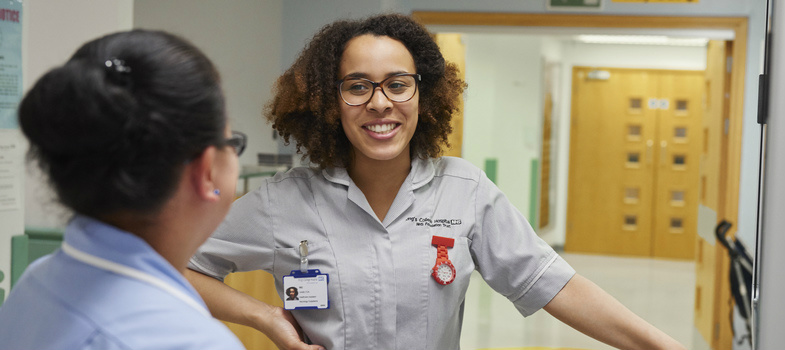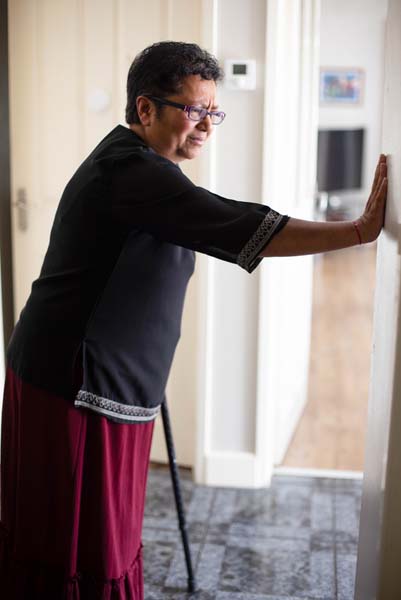2.11 Falls
Problems with balance and posture are common in Parkinson’s and the problem tends to increase over time. A person with Parkinson’s may walk very slowly, take small, unsteady steps and stoop forward, which makes them more likely to fall.
People may be anxious about falling when they are outside of their normal environment. Repeated or bad falls can impact on people’s health and mobility.
The following are all possible reasons people with Parkinson’s might fall.
- Physical reasons for falling: Freezing can cause some people to fall. As Parkinson’s progresses, a person’s posture can change – it may become more stooped and muscles can become more rigid. This inflexibility can also increase the risk of falling.
- General weakness: People with Parkinson’s can be much less active than they used to be, which can cause muscles to become weaker. This weakness can be a major cause of falls – so it is important to stay as active as possible to stop muscles and joints getting stiff and rigid.
- Postural hypotension: Low blood pressure can make some people with Parkinson’s dizzy when they stand up, so they’re more likely to fall over.
- Parkinson’s medication: Blood pressure problems can be a side effect of most kinds of Parkinson’s medication, which can cause dizziness. This may lead to falls. Your client may be taking drugs used to treat other medical conditions, such as high blood pressure, which can potentially make this dizziness worse. If this happens, their GP, specialist or Parkinson’s nurse should be informed. You can also help people avoid dizzy spells by making sure they are taking their medication as prescribed. If their drugs don’t seem to be working as well as they used to, a person might need their medication to be reviewed.
Hazards in and around the home/residential care home
Many things in the place where someone lives could be hazardous and make people more likely to fall, including slippery floors, loose carpets and general clutter. Here are some tips on how to reduce hazards in the home:
- Try to clear away as much clutter as you can and arrange the furniture so that moving around is as easy as possible.
- Hand or grab rails may be useful in tight spaces, such as in toilets, bathrooms or by the stairs. Putting non-slip mats in the bathroom will also help.
- Always make sure a person’s environment is well lit.
- If possible, apply strips of coloured tape to the edge of steps to reduce slipping and to make them more visible.
- Make sure they have commonly used items close to hand.
- Floor coverings can sometimes be a hazard. For example, carpet patterns can be visually confusing. Speak to the occupational therapist or physiotherapist about applying strips of tape or plastic footsteps on the carpet. These can guide people in places they may be more likely to fall, such as a tricky turn on stairs, or in doorways.
General advice
It’s important to encourage people to try to stay as active as possible and to exercise regularly to maintain their mobility and prevent falls. Walking aids and supportive footwear may also be helpful.
It’s important to seek advice from the physiotherapist or occupational therapist before using aids. This will help to make sure that people are using the most appropriate support.
Find out more in the Parkinson’s UK information sheet on falls [Tip: hold Ctrl and click a link to open it in a new tab. (Hide tip)] .
Actions to take
- Where appropriate, report any falls.
- Your client may benefit from physiotherapy, so a referral may be necessary.
2.10 Bladder and bowel problems

